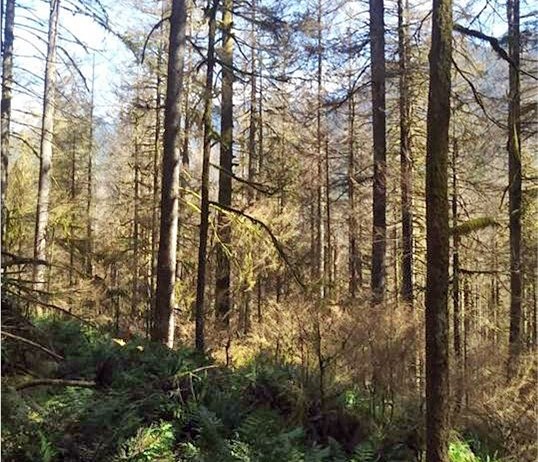Dear Editor:
Everybody who has hiked the North Shore Mountains has experienced the extreme ruggedness and beauty of the backcountry.
It appeals to outdoor enthusiasts, bikers and hikers. The influx of visitors creates an opportunity for our community. Our natural playground must be respected and protected, because without it we will all suffer.
This summer, the weather has been so hot and dry that the trees are under significant stress. However, the weather isn’t the only current threat to our forests; the looper moth, which has been a problem for years, has damaged our forests beyond repair.
As the larva stage of the moth develops, it kills the trees. Looking at the mountainside above Upper Lynn Valley, it is clear to see that the effects are widespread and catastrophic.
Despite their knowledge of the situation, no action has been taken by local municipalities to eliminate the moths or mitigate the problem.
As the looper moth population explodes, the trees turn reddish-brown and die in large quantities.
The ruggedness of the North Shore Mountains and their proximity to our community is extremely problematic. Many properties rely on the ground stability that the trees provide, such as those east of Mountain Highway and north of Dempsey. In this area alone there are thousands of trees with red crowns (indicating that the trees are dead); dead trees are also visible westward, towards the Braemar area.
I recently hiked to Kennedy Falls. The impact of the drought and the looper moth is astounding and an indication of what’s to come if no interventions are put in place. In this remote area, I would say 90 per cent of the tall trees are already dead – I took a picture to the north of the last standing old cedar tree that, coincidentally, was a favourite spot of [the late North Shore Rescue leader] Tim Jones. The whole slope is a graveyard of trees!
The warm weather and drought, combined with the effects of the looper moth larva, have a terrible impact on the trees. Once dead, the hills will become unstable and the rain will upturn the loose soil, creating mudslides. The forest is so tinder dry that it is in danger of catching fire. If this happens, the stability of the mountainside will be even more tenuous.
I believe the fire chief and other elected officials are underestimating the danger in our forests. Looking around our burning province and the extreme fire ratings, it is a good forewarning that proactive measures need to be taken before tragedy strikes.
What will it take for people in power to take action to protect our community?
Alex Schwarz
Lynn Valley
What are your thoughts? Send us a letter via email by clicking here or post a comment below.



